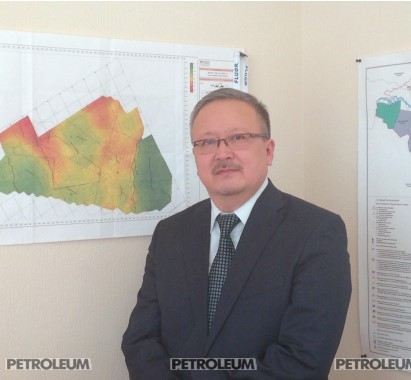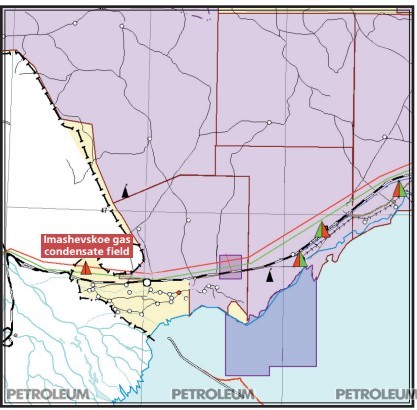Projects
Specific Features of Implementing Unratified International Agreements in Oil and Gas Industry at the Example of Imashev Field

On September 7, 2010, the Agreement on collaboration on geological study and exploration of transboundary Imashev gas-condensate field (hereinafter - Agreement) was signed between the Government of the Republic of Kazakhstan and Russian Federation
The authorized parties under the Agreement: NC “KazMunayGas” JSC and Gazprom OJCS determined “KazRosGas” LLP – Kazakh-Russia joint venture, incorporated on a parity basis in 2002, as an operator under the agreement in 2011.
Important stage in implementation of the Agreement is the signing of the Protocol to the Agreement made on November 11, 2013 in Yekaterinburg, providing to the operator under the Agreement a right for use subsoil of Imashev field both in the territory of the Republic of Kazakhstan, and in the territory of the Russian Federation.
Geological study and exploration of transboundary Imashev gas-condensate field is the first joint intergovernmental project in the oil and gas industry realized on the land and unique in world practice.
 Aituarov Aibek, Chief Geologist of KazRosGas LLP
Aituarov Aibek, Chief Geologist of KazRosGas LLPConsidering the fact that the Agreement is not ratified the operator under the Agreement shall comply with all the legal requirements of both States in terms of geological study and exploration.
The operator under the Agreement had to face quite significant differences in the legal requirements of the Republic of Kazakhstan and the Russian Federation, for granting a right for use subsoil for geological study and exploration and lack of legal statuses on regulation of works on transboundary fields.
The operator under the Agreement had to face quite essential distinctions in legislative requirements of the Republic of Kazakhstan and the Russian Federation Terms of an agreement.
The Agreement ensures the reserve calculation based on geological exploration work and the subsequent drafting of a feasibility study for the future development of Imashev field.
Only after this stage, a new agreement will be signed, regulating the procedure and conditions for the joint operation and allocation of the hydrocarbon reserves among the participating states.

Differences in Legislations of Two Countries
A comparative analysis of the application for subsoil use rights in two countries has shown that the differences are quite substantial:
- the bidding procedures shall be completed in the Republic of Kazakhstan prior to the direct negotiations with the competent authority, which includes an issue of a relevant Governmental decree; then the exploration project is being developed (for exploration or appraisal) and approved; a contract for exploration, which shall undergo a number of expertises, shall be issued and only after completing all these procedures, the operator can obtain the right to use the subsurface.;
- in the Russian Federation, in accordance with the current legislation, the authorities are ready to issue a license for geological study for the operator immediately, without a lengthy preliminary procedure of bidding and expertise, and the project for geological study is developed only after obtaining such a license.
In addition, if a field is considered as discovered in the Republic of Kazakhstan, and its preliminary reserves under the old Soviet data are registered in the State balance, the Russian Federation considers such area as unexplored, therefore, the reserves are not figured in the balance sheet.



